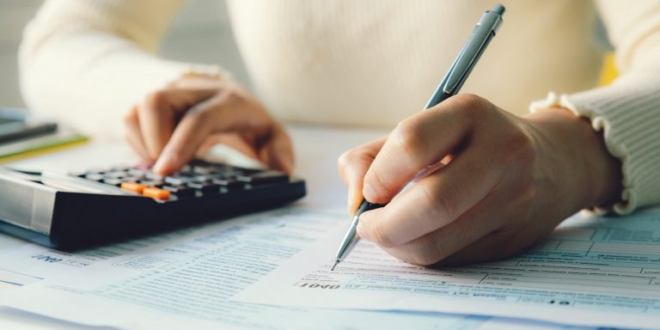When you begin to receive investment income in the UK, the first question many people ask is whether they need a personal tax advisor in the UK to help manage their finances. Investment income can include dividends, interest, rental income, or capital gains from shares, and understanding how tax works on these can be complex. So, do you need a personal tax accountant to navigate it all? Let’s find out.
What is Investment Income?
Investment income refers to the earnings from your investments, such as:
- Dividends: Profits paid to shareholders of a company.
- Interest: Earnings from savings accounts or bonds.
- Rental Income: Money earned from renting out properties.
- Capital Gains: Profits made when selling assets like stocks or property.
Each of these income streams is subject to tax in the UK, and the rates and rules vary depending on the amount and type of income.
Understanding UK Tax Laws for Investment Income
The UK tax system requires investors to declare and pay tax on their investment income. Depending on your total earnings, you might need to pay:
- Income tax: On interest and rental income.
- Dividend tax: On dividend earnings.
- Capital Gains Tax (CGT): On profits from selling assets like property or stocks.
There are specific thresholds for each type of tax, and understanding these is crucial. For instance, the dividend allowance is currently £1,000, meaning you can earn up to that amount in dividends tax-free. However, any earnings above this are taxed depending on your income tax bracket.
The Role of a Personal Tax Accountant
A personal tax accountant specialises in helping individuals manage their taxes. When it comes to investment income, their role includes:
- Calculating your tax liabilities: Making sure you pay the right amount of tax on your investments.
- Filing tax returns: Ensuring your self-assessment tax return is accurate and submitted on time.
- Advising on tax-efficient strategies: Helping you structure your investments in ways that reduce your overall tax burden.
- Keeping up with changing tax laws: Tax regulations change frequently, and a professional can ensure you’re always compliant.
Why You Might Need a Personal Tax Accountant
There are several reasons why you might need a personal tax accountant, especially when dealing with investment income:
- Complex tax laws: If you’re dealing with different types of investments, the tax laws can get complicated quickly.
- Multiple sources of income: If you have a variety of income streams (e.g., salary, rental income, dividends), it can be hard to keep track of everything.
- Potential tax savings: A good accountant can help you claim all the tax reliefs and allowances available to you, potentially saving you money.
Benefits of Hiring a Personal Tax Accountant
Here are some key benefits of having a tax professional handle your investment income:
- Accurate and timely filing: Ensures you avoid mistakes and penalties.
- Tailored tax advice: Accountants can provide advice based on your specific situation, ensuring you’re taking advantage of all possible tax breaks.
- Minimising tax liabilities: With their expertise, you can avoid overpaying taxes.
- Peace of mind: Knowing a professional is handling your taxes means you can focus on your investments and other important areas of your life.
When Do You Not Need a Personal Tax Accountant?
While having a tax accountant is beneficial for many, some situations may not require one:
- Simple tax returns: If your investment income is minimal or straightforward, you might not need an accountant.
- Government resources: The UK government offers free resources and tools, like the HMRC’s self-assessment system, which can help you file your own taxes.
Investment Income and Self-Assessment
If your investment income exceeds certain thresholds, you’ll need to file a self-assessment tax return. A personal tax accountant can assist with:
- Completing your return correctly.
- Making sure you don’t miss any deadlines.
- Helping you avoid penalties for late or incorrect submissions.
Common Mistakes Investors Make Without a Tax Accountant
Without a tax accountant, many investors make mistakes like:
- Miscalculating their taxable income: Especially with complex investments like shares and property.
- Missing tax reliefs: Overlooking available deductions, such as the personal savings allowance or capital gains tax allowance.
- Filing errors: Mistakes on your tax return can lead to penalties.
Cost of Hiring a Personal Tax Accountant in the UK
The cost of hiring a personal tax accountant varies depending on factors like:
- Complexity of your tax situation: The more complex your finances, the higher the cost.
- Experience and qualifications of the accountant: More experienced accountants may charge higher fees. On average, expect to pay between £200 and £1,000 for personal tax services, depending on your needs.
Choosing the Right Personal Tax Accountant
When selecting a tax accountant, consider:
- Their experience with investment income: Make sure they understand the tax rules for your specific types of investments.
- Certifications: Look for accountants who are members of recognised accounting bodies, such as the ICAEW or ACCA.
Tax Reliefs and Allowances for Investors
A tax accountant ensures you don’t miss out on:
- Dividend allowance
- Personal savings allowance
- Capital gains tax exemption These reliefs can significantly reduce your tax bill.
DIY Tax Filing for Investment Income: Pros and Cons
Pros:
- Cost-effective: Saves money if your tax situation is simple. Cons:
- Risk of errors: DIY filing increases the chance of making mistakes.
- Missed tax-saving opportunities: Without professional advice, you may overlook ways to reduce your tax bill.
Real-Life Scenarios Where a Personal Tax Accountant is Beneficial
- Investor with diverse income streams: An accountant can help juggle multiple forms of income efficiently.
- High-net-worth individual: For those with substantial investment portfolios, the tax savings can be significant.
Conclusion
In summary, whether you need a personal tax accountant for your investment income depends on the complexity of your finances. For those with significant or diverse investment portfolios, a tax accountant can save you money and ensure compliance with tax laws. However, if your income is straightforward and minimal, DIY filing might suffice.
FAQs
- Can I manage my investment income tax without an accountant? Yes, but it may be challenging if your investments are complex or you have multiple income streams.
- How do I know if my investment income is taxed? All investment income is subject to tax, but there are allowances and thresholds. You need to declare any earnings over the set limits.
- What are the penalties for incorrect tax filings? Penalties vary depending on the nature of the error and the delay in correction. Fines can range from fixed amounts to percentages of unpaid tax.
- Are there affordable alternatives to hiring a personal tax accountant? Yes, you can use online tax software, but these tools might not offer the same level of personalised advice.
What should I ask a tax accountant before hiring? Ask about their experience with investment income, their fees, and how they can help you save on taxes
 Personal Finance and Attractive Interest Rates Unlock Smart Savings with Low Rates and Expert Financial Tips
Personal Finance and Attractive Interest Rates Unlock Smart Savings with Low Rates and Expert Financial Tips







